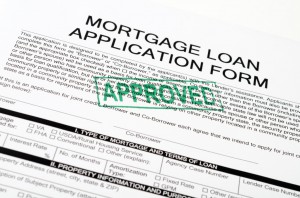 If you’ve ever applied for a mortgage, you undoubtedly asked a lot of questions. Troy Silhan knows all too well that answering borrower questions is vital to an open, productive lending process. And as Bank of England Mortgage Production Manager and Davidson Realty’s resident mortgage expert, he has the answers.
If you’ve ever applied for a mortgage, you undoubtedly asked a lot of questions. Troy Silhan knows all too well that answering borrower questions is vital to an open, productive lending process. And as Bank of England Mortgage Production Manager and Davidson Realty’s resident mortgage expert, he has the answers.
“Because of ever changing lending regulations, market adjustments and so on, it’s not uncommon for borrowers to have a long list of questions – even those who have purchased several homes,” said Troy. “This is a big investment, so it is important to understand each step throughout.”
Here are some of the most common questions encountered by Bank of England Mortgage’s lending professionals.
What is the first step to find out how much I can borrow?
Pre-qualification, which Bank of England Mortgage refers to as Priority Qualification, is the first step. The process can vary from company to company. “Not all pre-qualifications are the same,” said Troy. “At Bank of England Mortgage we review income documents, bank statements and discuss where the funds for closing are coming from prior to sending out the Priority Qualification letter.”
Once I sign my mortgage application do I have to borrow the money?
No. These pre-closing documents allow your mortgage banker to negotiate and secure loan approval for you. However, your signature is not binding on the application.
I heard I will need an appraisal and survey. Who handles that?
Your lender will order the appraisal for you (for new construction, the builder places the order). Typically, the title company orders the survey. Most contracts contain options for you to select when the appraisal and survey are ordered.
 What do you mean when you say “locking my rate?”
What do you mean when you say “locking my rate?”
When you lock your rate, you are guaranteed a precise interest rate for a specific period of time. It is important to note that lower interest rates often have shorter lock periods.
How to do you find the origination and discount points?
These are both a percentage of your loan. Borrowers with a small (or no) down payment can still obtain a loan, but will usually pay a slightly higher interest rate. “Some lenders charge fees for the interest rate or for their services,” mentioned Troy.
Was your question on this list? If not, contact Troy Silhan today at (904) 217-9489 or TSilhan@boejax.com.







